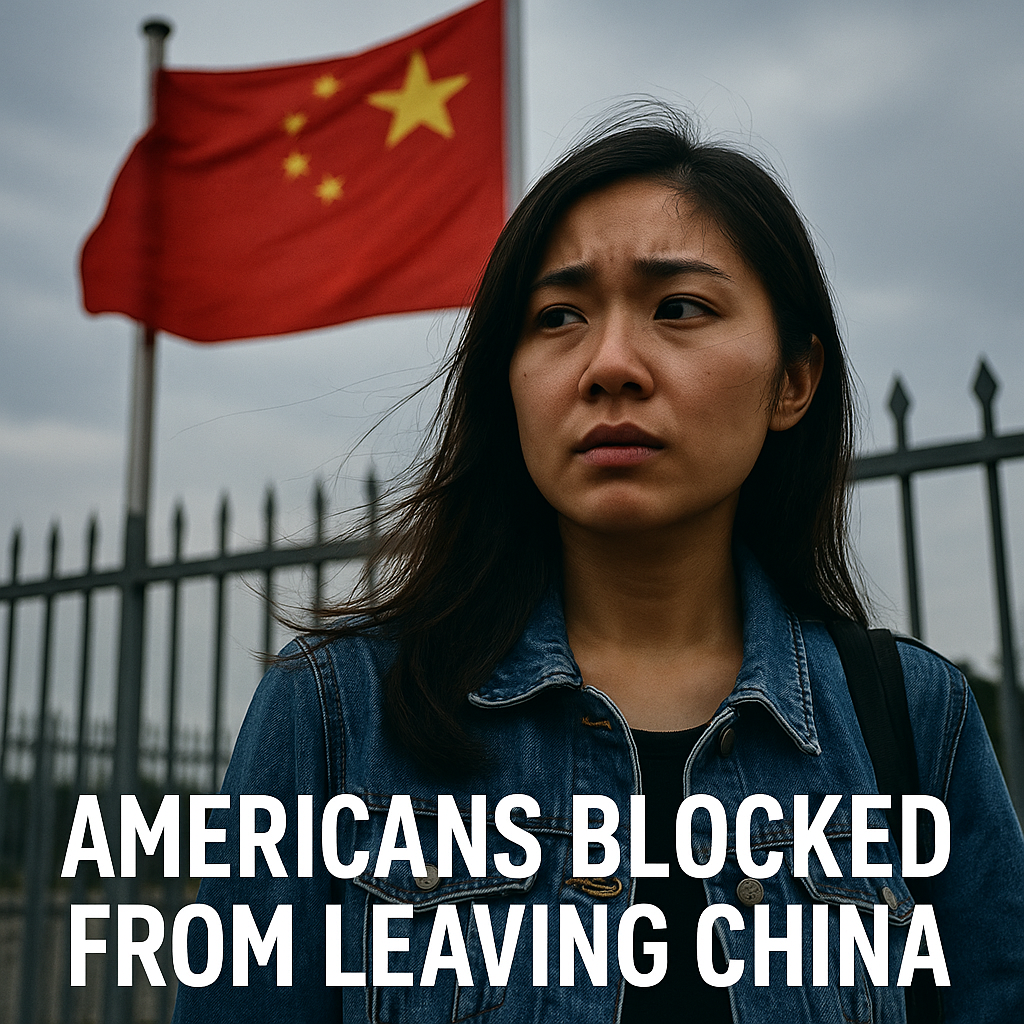Trapped in China: The Silent Reach of Beijing’s Exit Ban Policy Update
The silent weapon of authoritarian control often flies under the radar. One such tool—China’s controversial use of “exit bans”—has drawn renewed scrutiny following reports that dozens of U.S. citizens have been barred from leaving the country.-Rafael Benavente

By Rafael Benavente
In a world increasingly defined by geopolitical rivalries and national security anxieties, the silent weapon of authoritarian control often flies under the radar. One such tool—China’s controversial use of “exit bans”—has drawn renewed scrutiny following reports that dozens of U.S. citizens have been barred from leaving the country.
While Beijing claims no wrongdoing, the practice raises urgent questions about international law, human rights, and the safety of foreigners doing business in or visiting China.
The Exit Ban: A Tool of Leverage and Control
China's exit bans are administrative restrictions that prevent individuals—citizens and foreigners alike—from leaving the country. Officially, they are used in criminal investigations, civil disputes, or national security matters. In practice, they have become a shadowy method of detaining individuals without trial, often with minimal transparency or due process.
According to recent reports, at least 26 U.S. citizens have been blocked from leaving China over the past year, sometimes for years at a time. Many are not accused of crimes themselves. Instead, they are reportedly being used as leverage in legal or political cases involving others—such as business partners or relatives.
China Denies Wrongdoing—but Offers No Clarity
When pressed, Chinese officials insisted their actions are lawful and justified. A foreign ministry spokesperson told reporters:
“China is a country governed by the rule of law. Exit bans are implemented in accordance with the law.”
But critics argue that the law itself is opaque, and its application is arbitrary. There is no formal notification process for many of the Americans affected. In some cases, individuals only learn of the ban when attempting to board a flight.
The State Department, meanwhile, has issued travel advisories warning Americans of the risk of arbitrary exit bans, especially those involved in commercial disputes or politically sensitive matters.
Hostage Diplomacy? A Pattern Emerges
Human rights groups and former U.S. diplomats are increasingly calling this “hostage diplomacy.” That is, using exit bans not to enforce justice but to pressure foreign governments or companies.
Examples include:
- Business executives barred from departure due to unrelated lawsuits
- Family members of suspects used as pawns
- Exit bans tied to trade disputes or regulatory crackdowns
In one case cited in the report, a Chinese-American dual national was unable to leave China for over three years while local authorities pursued a commercial dispute involving her employer.
Implications for Global Business and Diplomacy
This trend has profound implications for multinational firms operating in China. If employees—especially senior executives or dual nationals—can be held indefinitely without trial, companies may reconsider the risks of having a physical presence in the country.
It also adds a layer of complexity to already fragile U.S.-China relations. While both governments claim to be engaging in constructive dialogue, the shadow of coercive tactics like exit bans undermines mutual trust.
The Biden administration has called on Beijing to release all unjustly detained U.S. citizens and to be transparent in its legal processes. So far, no meaningful change has been observed.
Not Just an American Problem
While recent headlines focus on Americans, citizens of other countries—including Canada, Australia, and Japan—have also been targeted. In 2018, two Canadian citizens, Michael Kovrig and Michael Spavor, were famously detained in China in what many saw as retaliation for Canada’s arrest of Huawei executive Meng Wanzhou.
The broader message is chilling: No foreign national in China is truly immune from political or legal entanglements.
The Bigger Picture: Surveillance and State Power
The exit ban policy fits into a broader architecture of surveillance and control in Xi Jinping’s China. From digital tracking to mass censorship and “social credit” systems, the Chinese Communist Party continues to refine its tools for monitoring and disciplining people—both at home and abroad.
For foreigners, this means that visiting or doing business in China carries a growing list of risks:
- You may be surveilled without your knowledge
- You may be barred from leaving during a legal dispute
- You may be detained based on someone else’s actions
Conclusion: Proceed With Caution
While China remains a key player in the global economy and diplomacy, its exit ban practices highlight a darker reality beneath the surface. The country's legal system operates within the political framework of the Communist Party, not independent judicial oversight. This makes redress for foreign nationals extraordinarily difficult.
As more stories emerge of Americans trapped under shadowy exit bans, one thing becomes clear: Freedom of movement is no longer guaranteed when you step into a country where law serves the state, not the citizen.
Credits:
Portions of this article are based on original reporting by Fox News, titled “China denies wrongdoing in preventing dozens of Americans from leaving under shadow ‘exit ban’.” Full article available at: Fox News – World.
Special thanks to their reporting team for highlighting this critical and underreported issue affecting U.S. citizens abroad.
